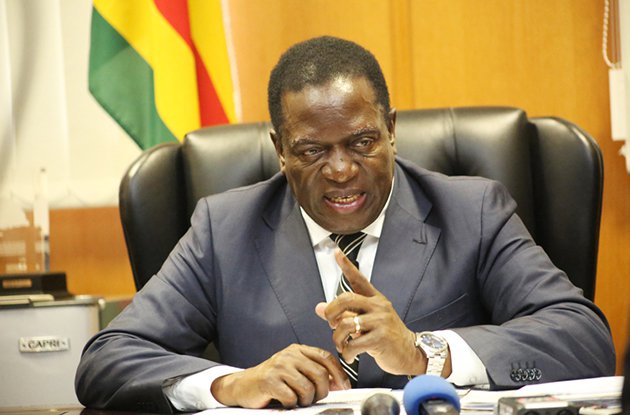By Tatenda Dewa | Harare Bureau |
Acting President, Emmerson Mnangagwa, on Thursday admitted corruption was rife among public sector officials who were using ill-gotten wealth to fund lavish lifestyles.

Mnangagwa, Mugabe’s co-deputy who is acting in the stead of President Robert Mugabe who is away for the Non-Aligned Movement (NAM) summit and later a United Nations (UN) convention, was speaking at the Zimbabwe Anti-bribery, Anti-corruption and Risk Management conference in Harare.
He said individuals who engaged in corruption must not be tolerated, adding that, in order to effectively deal with prevalent corruption, there was need to build strong institutions to check the growing disease of poor governance.
“People entrusted with positions of authority who engage in dishonest and unethical practices for personal aggrandisement do not deserve an inch of space in our society.
“An insight for us all therefore is that public finances should never be used to support luxurious lifestyles at the expense of the economy and the social needs of the poor,” said Mnangagwa.
He said there was need to craft a new model to fight corruption that would include building a new governance culture.
Mnangagwa blamed excessive bureaucracy in government and other institutions for the emergence of bribe-seeking intermediaries and acknowledged that corruption was hindering foreign direct investment.
“Corruption in a way acts as an implicit tax on investors. Costs are associated with negotiation and paying bribes to intermediaries normally adds up large amounts with investors giving up projects that ordinarily would have been profitably undertaken creating jobs for the youths and women.
“Moreover, corruption has an adverse effect on income distribution resulting in high-socio-economic inequalities among citizens and general poverty amongst many. It is the poor that cannot pay bribes or establish connections with the powerful that are most affected,” added Mnangagwa.
He said corruptly obtained wealth was being externalized, thereby undermining government’s capacity to function properly.
“To perpetuate corruption, those that gain from such practices always work to weaken existing institutional structures and systems by bribing those responsible for such institutions.
“Money, excessive gifts, generous entertainment and hospitality are normally offered to those in authority to influence outcomes in favour of the corrupt,” said Mnangagwa.
Zimbabwe is considered one of the most corrupt countries in the world and corruption has been blamed for partly contributing to the current economic crisis marked by weak revenue generation, high unemployment, growing poverty and declining social services.
Hundreds of citizens have recently taken to the streets to demonstrate against corruption, in addition to poor public policies, human rights abuses and an ever weakening economy.
Security forces, however, have ruthlessly clamped down on the protesters and banned demonstrations in Harare. Nehanda Radio






